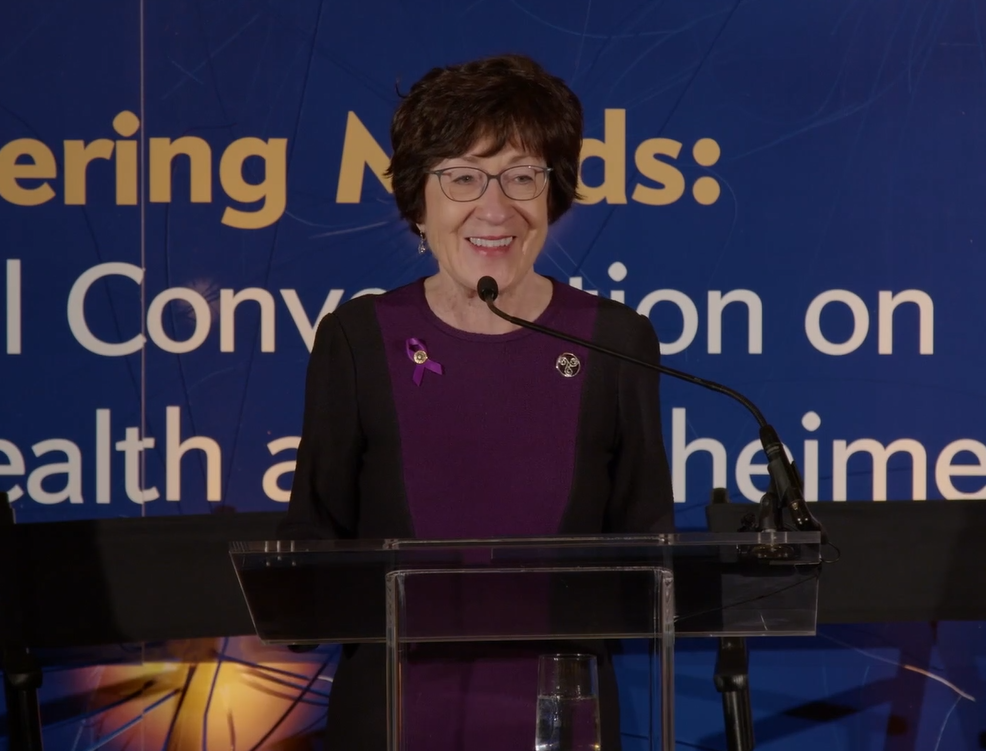Senator Collins Delivers Remarks at Alzheimer’s Collaborative Event

Click HERE for a high-resolution photo from the event.
Click HERE to watch Senator Collins’ full remarks.
Washington, D.C – U.S. Senator Susan Collins delivered remarks at an event hosted by the Davos Alzheimer’s Collective and Scientific American. More than 100 distinguished voices in science, industry, advocacy and policy were in attendance to highlight critical initiatives to transform the ability of global health care systems to detect, diagnose, and treat those at risk of dementia. Senator Collins is a founder and co-chair of the bipartisan Congressional Alzheimer’s Taskforce.
“In many ways, Alzheimer’s is the defining disease of this generation, and we must not let it define our children’s generation as well. Since 2013, we have grown Alzheimer’s and related research at the National Institutes of Health from just over $500 million, to a record high $3.7 billion last year.” said Senator Collins. “Combatting dementia and dementia-related disease requires the world to gather together to fight back, and the Davos Alzheimer’s Collaborative is doing just that, to the benefit of all people. This is an effort that transcends politics, because Alzheimer’s disease does not care if you’re a Democrat or Republican, Green, or Independent – it does not discriminate.”
Approximately 6.7 million Americans are living with Alzheimer’s, and the United States spends more than $345 billion per year, including $222 billion in costs to Medicare and Medicaid. Barring any major breakthroughs to prevent, slow down, or cure Alzheimer’s, the number of Americans with Alzheimer’s is expected to double by 2050, costing the nation more than $1.1 trillion per year.
Last month, Senators Collins, Catherine Cortez Masto (D-NV), Shelley Moore Capito (R-WV), and Tim Kaine (D-VA) introduced the Building Our Largest Dementia (BOLD) Infrastructure for Alzheimer’s Reauthorization Act of 2024. This legislation would reauthorize funding for public health initiatives across the country to combat Alzheimer’s disease and preserve brain health. These initiatives began when the original BOLD Act, authored by this same bipartisan group of four senators, was signed into law in 2018. With Senator Collins’ support, funding for the BOLD Infrastructure for Alzheimer’s Act has grown from $10 million in fiscal year 2020 to $33 million in fiscal year 2023.
In September 2020, the Maine Department of Health and Human Services received one of the first BOLD Program Awards. This investment has allowed for great progress in implementing the Maine State Plan for Alzheimer’s Disease and Related Dementias. In September 2023, Maine received a second BOLD award from the CDC for Alzheimer’s prevention programs, which provides implementation funding to build on its initial investments and allow the state to carry out the Maine Alzheimer’s Prevention Program and the CDC’s Healthy Brain Initiative Road Map.
###